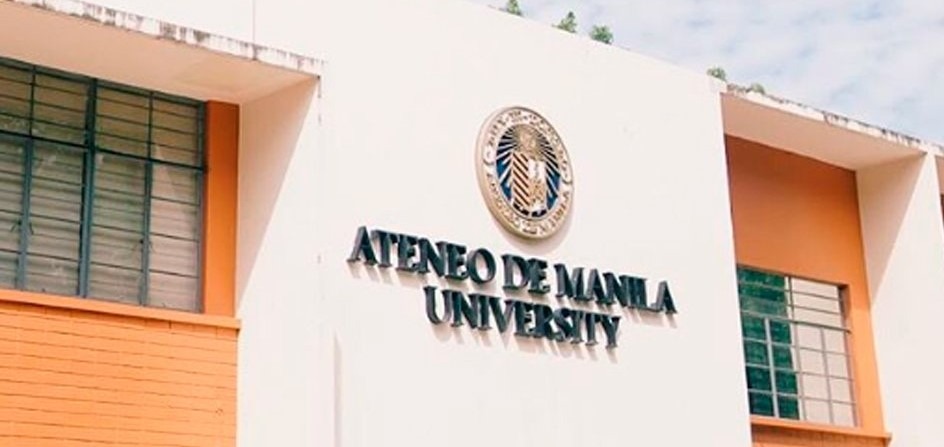
by rossanahead | Mar 8, 2012 | career, Education, Lyra Pore, woman
By Lyra P. Villafana
I used to edit a two-volume publication on legal costs. Referred to by practising lawyers in Australia, it was one of the most difficult to understand among all the products in my department’s list.
The first time I spoke to the author, she asked: “Are you legally qualified?”
“No,” I said. “I have a bachelor degree in Communication and my background is publishing, not law.”
“I can’t imagine how you can edit this kind of publication.”
Notwithstanding my lack of formal legal education, I forged a productive relationship with the author. I gave her all the support she needed to be able to perform well as an author. In return, she delivered her manuscript on time, picked up the phone and talked to subscribers when I asked her to, and helped me with my product research. The question about the law degree never came up again.
All these years that I’ve worked in legal publishing in Australia, my education in the Philippines has served me in good stead. My training at the Ateneo de Manila University Graduate School of Business has helped me develop commercial acumen, a skill that is becoming valuable among editors these days.
Editors are not just wordsmiths anymore. Rather, we are the commercial owners responsible for the profit and loss of our publications. Even when I was editor-in-chief of Entrepreneur magazine in Manila, I looked at the title in terms of market wants and needs. I managed the editorial process so we could go to press on time—the earlier we could supply the magazine to distributors, the more money we would make on newsstand sales.
I’ve reaped dividends too from my UP Communication degree.
The ability to read and analyze difficult text? My grasp of grammar and punctuation? The confidence to believe that I can learn and engage in meaningful discourse? UP nurtured me in all of these.
There are many other overseas Filipinos like me who have established themselves in their chosen careers. Nurses. Engineers. Accountants. IT professionals. The two things we all have in common: the fortitude to finish our studies and the tenacity to get every job done.
Photo by Daniel Chekalov on Unsplash

by rossanahead | Mar 8, 2012 | career, Education, family, woman
By Paige de Guzman
There’s a love and hate relationship between me and college. One minute I was loving it, then hating it the next. I love vacations. I love lazy days and happy mornings when I don’t have to wake up early to go to school. I love it when I don’t have to sit in the bus in the middle of traffic and end up late for class.
Nevertheless, I did my best. I woke up early, finished my assignments, studied my readings, and aced my classes. Sometimes, I would complain, but always, I tried to do my best. At the time, I always thought of what my parents told me: “It’s for your future.”
And oh, how right they were!
Of course, the realization did not come right away. When I graduated, I went job-hunting, taking tests and doing interviews. At first, it was frustrating. But because I knew exactly what I wanted, I did not lose hope. Today, I am working full time as a publishing specialist while doing part-time work as a writer.
But reaping the rewards of a good education does not stop with getting a good job. A good education reflects on the quality of your work. It shows on how you handle pressure. Aren’t exams, graded recitations, and project deadlines stressful? Well, I’ve realized that they’re almost the same—deadlines in school and deadlines at work. The difference is that you get paid with the latter. That’s when I tell myself, “Thank God, I did my best in school!”
A good education also reflects on how well you relate to people. It shapes into the kind of person that you are. Before college, I was a socially awkward girl who stammered a little bit in class. I suppose, all those graded recitation sessions fixed that.
I might have hated school at one time or another, but looking back, I’m glad I did my best. I know that I wouldn’t be here now if I hadn’t burned the midnight oil.
Photo by Element5 Digital on Unsplash

by rossanahead | Mar 8, 2012 | career, children, Education, environment, woman
By Leslie G. Lee
When I started my senior year in high school, I smugly thought I had my life all mapped out. I was now at the top of the so-called food chain; I had been promoted to editor-in-chief of our school paper from my previous post as features editor; and, like my older sister before me, I planned to study in De La Salle University, majoring in LIA-COM, a fusion of Liberal Arts and Business degrees.
But as usual, life threw me in for a spin when it was time for the college entrance exams.
I was not expecting to be accepted by the Ateneo. Never. At all. My mind was so set on DLSU that it didn’t occur to me that I actually had a fighting chance for a spot in that prestigious university. When I got my admission letters from the two universities, my parents and I had a huge row. I was adamant about La Salle: almost all my friends would be going there, it was only an hour away from home, I’d be receiving a partial scholarship for English, I’d be graduating with a double degree of sorts, et cetera ad infinitum. But my parents were equally firm about the Ateneo—especially my dad, the entrepreneur who wasn’t able to obtain a college degree and wanted his second daughter, his second child, to attend a university that offered a “higher” quality of education.
It took about a month and plenty of parental bribes before I finally caved in and was reluctantly chaperoned and dragged off to pay my confirmation fee at the Ateneo de Manila University.
Now I wonder why I had been so against the idea in the first place.
It’s been more than a decade since I became an Atenean alumni, and it never fails to amaze and astound me each time I remember how much I’d thrived—not just survived—in those four years.
In Ateneo, I was plucked out of my Chinese comfort zone, learned to interact and adapt to true-blue Pinoys, and was exposed to other Filipino traditions. I learned how to drop my Chinese accent, talk Tagalog properly, and speak better English. I was introduced to fascinating topics such as the Holocaust, subjects like Philosophy and Film Theory, and the “science” of deciphering the Bible. I grew to appreciate fabulous short stories such as “The Lottery” and “Beheading of the Heads” and film classics such as Rear Window and Il Postino. And I don’t know if this will seem superficial and shallow to others, but I appreciate the image and reputation that the Ateneo has established, as they have given me access to respectable companies here and abroad.
To continue my litany of praises (and bragging rights) for being an Atenean would take far too much time and space, so let me just say that I will forever be grateful for being “coerced” to study in Ateneo. I love and am proud of being a product of the Ateneo.
Because, you see, I don’t think of education or studying as merely something you do by the book—it’s a way of life. With the right kind of education, you’re taught to deal with people from all walks of life. You study subjects and explore topics that trigger your brain synapses. You discover how you are as a person, your working style and ethics (based on group projects), and how to navigate your way once you’ve left the confines of school and entered the real world.
Good education prepares you for these things, and being a good—if not excellent—student brings you good karma, so to speak. Isn’t it any wonder that almost all companies require a copy of one’s TOR (Transcript of Records) for each application?
Featured Photo Courtesy of ABS-CBN News

by rossanahead | Feb 2, 2012 | career, Education, woman
By Paige de Guzman
When I was still studying in college, I thought I had my life all planned out. I thought I knew what I wanted. When I graduated and went out to the real world, my life’s certainties blew up in my face. All of a sudden, my best laid plans were not what I wanted anymore.
As an undergraduate, I felt like I was a soldier being propped up for battle. I had the best teachers, the best books, the best facilities, and one of the most expensive tuition fees. When I graduate, I thought my life would sail smoothly just like it did at the university.
Well, I was in for a surprise.
While I managed to ace almost every subject I took, I found out that in the real world, I didn’t know everything. While I mastered theories and concepts, I found out that in the real world, things don’t always work out the way they’re supposed to. A lot of variables come into play in everyday life, something that’s absent in pristine libraries and laboratories.
But still I say: Study. Study hard. Study everything that you could get your hands, but make sure you get some practical learning as well. Join organizations. Be active on projects. Read books. Know the world around you. Meet new people. Make connections.
As an undergraduate, you may think that you know everything. But out in the real world, you’ll realize you know nothing at all. Your education is the foundation, but it’s up to you to fashion it into a bright future.
Photo by Siora Photography on Unsplash
by rossanahead | Oct 11, 2011 | children, Education, Karen Galarpe, parenting
By Karen Galarpe
I craned my neck to scan the crowd for a familiar face. So many high school seniors have been spilling out onto the sidewalk on Taft Avenue in Manila right after they took the De La Salle University College Entrance Test (DLSUCET) last Sunday night. Some of them were smiling, while some looked serious.
“Ang hirap naman ng exam! Puro word problems! Mas madali pa ang ACET!” one guy said, talking to someone on his cellphone. (The ACET refers to the Ateneo College Entrance Test.)
“Madali lang. Mas mahirap pa ang ACET, pero pinakamahirap ang UPCAT,” said my son when we finally met up. (UPCAT, on the other hand, is the University of the Philippines College Admission Test.)
I found it sweet to see a mom smiling from ear to ear as her daughter was telling her something. And then there was the touching scene where a daughter held on to her dad’s arm, a latte in the other hand, while they walked. She was talking about the exam animatedly, while her dad beamed from ear to ear.
This has been the pattern, more or less, for the past few months as many college hopefuls have started taking those competitive college entrance exams at the country’s top universities. Parents would anxiously wait right outside exam venues, and would be all ears to find out how their children did.
At the University of the Philippines (UP) campus last August, thousands of parents and family members (with some of them even bringing their pet dogs as well) congregated outside UPCAT venues throughout the campus as the examinees went out. The anxiety written on parents’ faces would change to pride and joy as soon as their sons and daughters emerged from the gates.
The same scenario was seen in the next exam, that of the University of Santo Tomas (UST) that same month. Then it was replicated at the Ateneo de Manila University last September and DLSU last Sunday. Before the month is over, UST will have its second UST Entrance Test (USTET) for high school seniors.
If students are nervous about these tests, so are their parents, believe me. Every parent wants only the best for her child, and a good education, they say, is the best legacy a parent can give. Of course, most parents want their children to get the best university education there is, thus the shared anxiety during this season.
Come January next year, expect to see ecstatic status messages on Facebook from parents of college hopefuls as universities start releasing the lists of those who got admitted to their campuses. To see one’s child get into the university of his dreams – that would be a milestone along with the great moments of all time: the day a child made his first step, celebrated his first birthday, went to school for the very first time, attended his first prom, and graduated from high school. Someday, in the far far future, we hope, would be the first relationship, the wedding, and the first grandchild for us. But that seems like light years away. For now, there is college, and so we wait.




